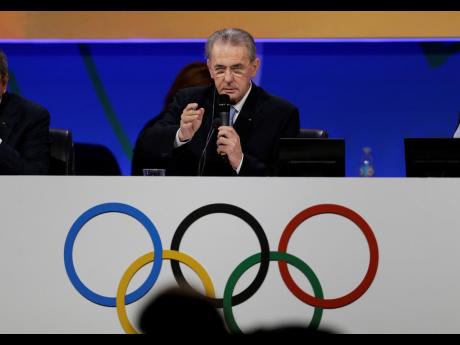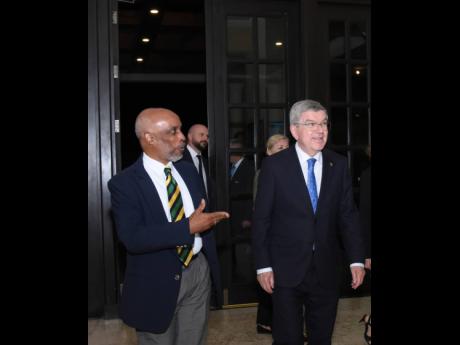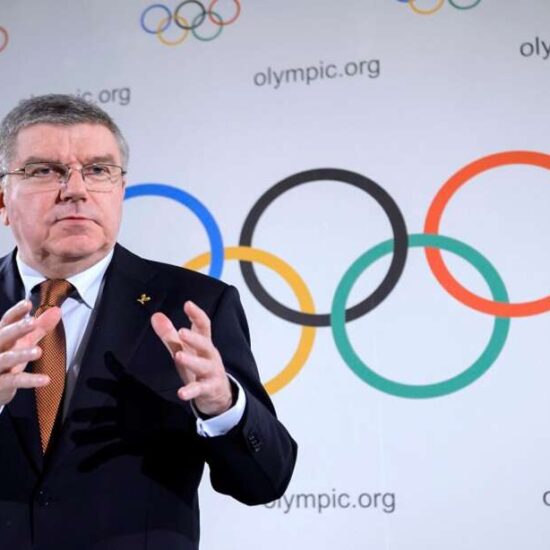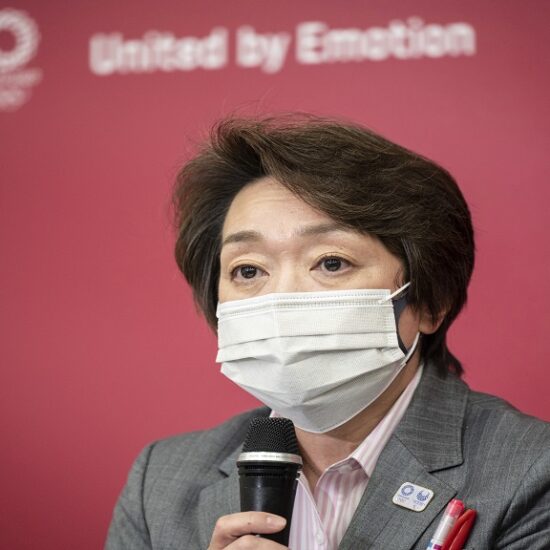LONDON, England (AP):
Jacques Rogge approached the job of running the Olympics the same way he approached his work as a physician: listen, analyse, and consult.
Before taking over as president of the International Olympic Committee (IOC), Rogge, whose death was announced on Sunday, was an orthopaedic surgeon who saw 5,000 patients and performed 800 operations a year at his medical practice in Ghent, Belgium.
Rogge’s medical background heavily influenced his leadership style during his 12-year reign in the most powerful post in international sports, bringing stability and a steady hand to the IOC after its worst ethics scandal. He also pursued a hard line against doping as IOC president.
While his predecessor, Spaniard Juan Antonio Samaranch, operated in an autocratic and secretive fashion, Rogge embraced a more open, democratic, and collegial style. Measured and unpretentious, he described himself as a “sober” leader.
“In medicine, you first listen to your patient. You listen to what he has to tell you, then you do the examination, you analyse, then you make a diagnosis, then you come up with the treatment,” Rogge said in an interview with The Associated Press in 2002.
“I’m definitely a listener. I consult with people and try to make an analysis. I won’t do it alone. I’m a team worker.”
The IOC announced his death without giving details. Rogge’s health had visibly declined when he attended Olympic events since his presidency ended in 2013.
“First and foremost, Jacques loved sport and being with athletes, and he transmitted this passion to everyone who knew him,” Thomas Bach, Rogge’s successor as president, said in an IOC statement. “His joy in sport was infectious.”
FACED CRITICISM
A three-time Olympian in sailing, Rogge earned praise for his calm in the often turbulent world of Olympic politics but also faced outside criticism for not being tough enough on human rights issues with China and Russia.
He managed a steady growth in IOC revenues, even during the global economic crisis; made peace with the US Olympic Committee after years of bitter squabbling over money-sharing; and – in what he considered his personal legacy – created the Youth Olympics.
Under Rogge’s watch, the IOC took the Olympics to new countries and continents, awarding the first Summer Games to South America (Rio de Janeiro in 2016) and the first Winter Games to Russia (Sochi 2014) and South Korea (Pyeongchang 2018).
“I hope that people, with time, will consider that I did a good job for the IOC,” the understated Rogge said in an interview with the AP before stepping down in 2013. “That’s what you legitimately want to be remembered for.”
Rogge was elected the IOC’s eighth president in Moscow on July 16, 2001, defeating four other candidates to succeed Samaranch, a former ambassador who ran the committee with an authoritarian and imperious style for 21 years. Rogge took office in the wake of the Salt Lake City corruption scandal in which 10 IOC members resigned or were expelled for receiving scholarships, payments, and lavish gifts during the Utah capital’s winning bid for the 2002 Winter Games.
Rogge spoke five languages, a big selling point in the multilingual IOC. His native tongue was Flemish or Dutch, but he also spoke French, English, Spanish, and German.
He is survived by his wife, Anne, and their two adult children.
Rogge was born on May 2, 1942, in Ghent, a medieval Flemish harbour city. By the age of three, he was accompanying his parents on sailing trips along Belgium’s North Sea coast.
He went on to compete in sailing’s Finn class in three Olympics – Mexico City 1968, Munich 1972, and Montreal 1976. He also played 10 years on Belgium’s national rugby team.
Rogge began his career in sports administration at the age of 34 as an athlete’s representative on Belgium’s national Olympic committee. As Belgium’s team leader for the 1980 Moscow Olympics, he resisted pressure to adhere to the US-led boycott following the Soviet invasion of Afghanistan. The Belgian team went to Moscow and competed under the Olympic flag.
Rogge headed the Belgian Olympic Committee from 1989-1992 and was president of the European Olympic Committees from 1989-2001. He became an IOC member in 1991 and won praise for his role as chairman of the coordination commission for the 2000 Sydney Olympics.
Rogge was made a count by Belgium’s King Albert II in 2002 and received an honorary British knighthood in London in 2014.
The IOC said the Olympic flag will be flown at half staff for five days at Olympic House in Lausanne.
“Following a private family ceremony, a public memorial service will take place later in the year,” the IOC said, “where members and friends of the Olympic Movement will be able to remember his life and his great contribution to sport.”







 and then
and then